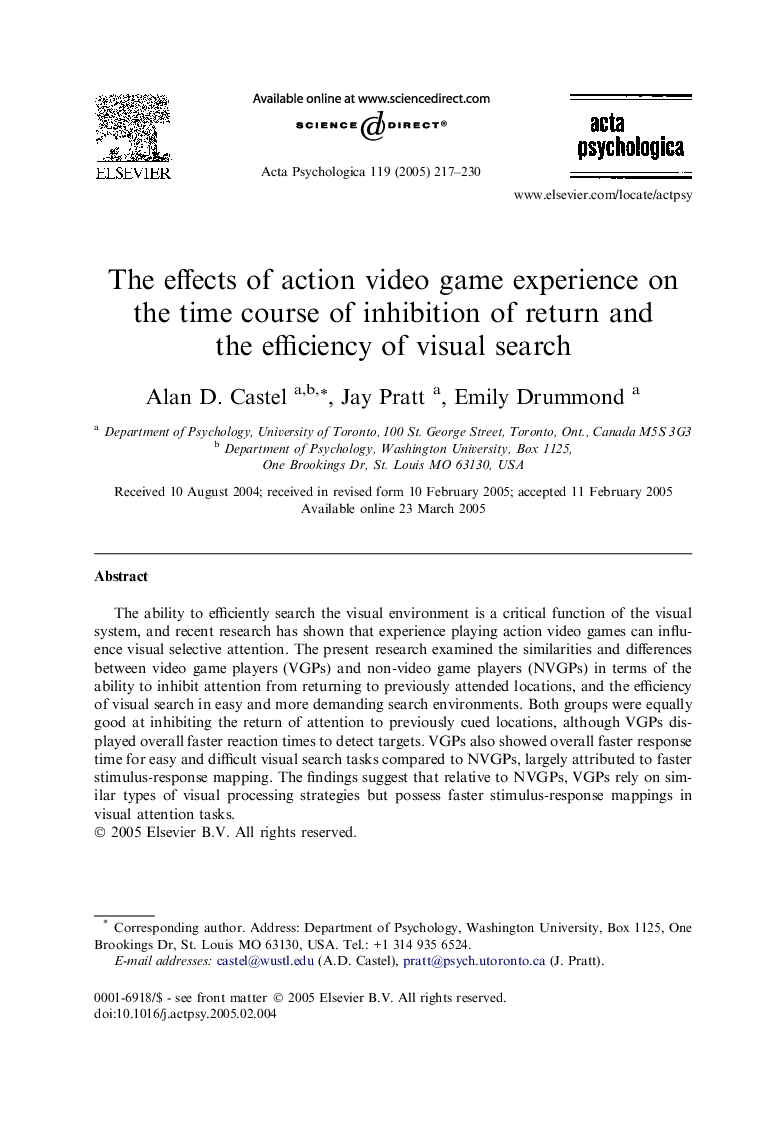| Article ID | Journal | Published Year | Pages | File Type |
|---|---|---|---|---|
| 10453888 | Acta Psychologica | 2005 | 14 Pages |
Abstract
The ability to efficiently search the visual environment is a critical function of the visual system, and recent research has shown that experience playing action video games can influence visual selective attention. The present research examined the similarities and differences between video game players (VGPs) and non-video game players (NVGPs) in terms of the ability to inhibit attention from returning to previously attended locations, and the efficiency of visual search in easy and more demanding search environments. Both groups were equally good at inhibiting the return of attention to previously cued locations, although VGPs displayed overall faster reaction times to detect targets. VGPs also showed overall faster response time for easy and difficult visual search tasks compared to NVGPs, largely attributed to faster stimulus-response mapping. The findings suggest that relative to NVGPs, VGPs rely on similar types of visual processing strategies but possess faster stimulus-response mappings in visual attention tasks.
Keywords
Related Topics
Life Sciences
Neuroscience
Cognitive Neuroscience
Authors
Alan D. Castel, Jay Pratt, Emily Drummond,
